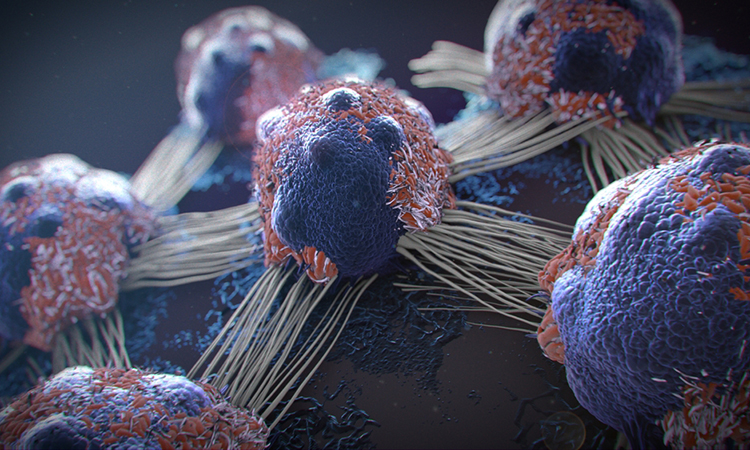Analysis of proteomic data reveals potential therapeutic targets for cancer
Posted: 8 March 2021 | Victoria Rees (Drug Target Review) | No comments yet
Researches have provided a proof-of-concept that proteomic analysis could be used to identify drivers of aggressive cancers.


Researchers have shown that analysis of the proteomic data from aggressive human cancers is a useful approach to identify potential novel therapeutic targets. The research was conducted at the Baylor College of Medicine, US.
“There are two notable aspects of this study. One is that we explored the proteomic landscape of cancer looking for proteins that were expressed in association with aggressive forms of cancer,” said co-corresponding author Professor Chad Creighton. “We analysed protein data that included tens of thousands of proteins from about 800 tumours including seven different cancer types – breast, colon, lung, renal, ovarian, uterine and paediatric glioma – made available by the Clinical Proteomic Tumor Analysis Consortium (CPTAC) mass-spectrometry-based proteomics datasets.”
Computational analysis for the datasets identified proteomic signatures associated with aggressive forms of cancer. According to the researchers, these signatures pointed at altered cellular pathways that might be driving aggressive cancer behaviour and could represent novel therapeutic targets. Each cancer type showed a distinctive proteomic signature for its aggressive form. Some signatures were common to different types of cancer.
Drug Target Review has just announced the launch of its NEW and EXCLUSIVE report examining the evolution of AI and informatics in drug discovery and development.
In this 63 page in-depth report, experts and researchers explore the key benefits of AI and informatics processes, reveal where the challenges lie for the implementation of AI and how they see the use of these technologies streamlining workflows in the future.
Also featured are exclusive interviews with leading scientists from AstraZeneca, Auransa, PolarisQB and Chalmers University of Technology.
The other aspect of this study was to provide proof-of-concept that the proteomic analysis was a useful strategy to identify drivers of aggressive disease that could potentially be manipulated to control cancer growth.
“That is exactly what we were able to do with this new, very powerful dataset,” said co-corresponding author Assistant Professor Diana Monsivais. “We focused on the uterine cancer data for which the computational analysis identified alterations in a number of proteins that were associated with aggressive cancer. We selected protein kinases, enzymes that would represent stronger candidates for therapeutics.”
Of hundreds of initial candidates, the researchers selected four kinases for functional studies in uterine cancer cell lines. They found that the kinases not only were expressed in the uterine cancer cells lines, but also that manipulating the expression of some of the kinases reduced the survival or the ability to migrate for some uterine cancer cells. Cell migration is a property of cancer cells that allows them to spread cancer to other tissues.
“In this study, we compared mRNA and protein signatures and, although in many cases they overlapped, about half the proteins in the proteomic signatures were not included in the corresponding mRNA signature, suggesting the need to include both mRNA and protein data in cancer studies,” Creighton said.
The study is published in Oncogene.
Related topics
Big Data, Informatics, Oncology, Protein, Proteomics
Related conditions
Cancer
Related organisations
Baylor College of Medicine
Related people
Assistant Professor Diana Monsivais, Professor Chad Creighton



